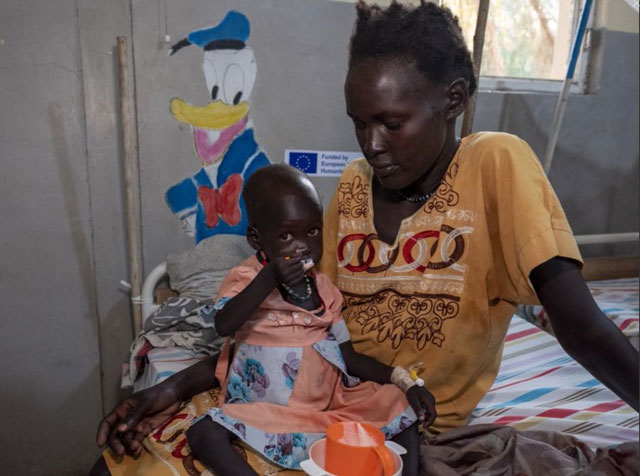
Nairobi, Kenya | THE INDEPENDENT | At least 1.5 million children are not receiving life-saving treatment for severe wasting in Eastern and Southern Africa, UNICEF has warned in a statement released on Friday.
The number represents almost half of the estimated 3.6 million children in urgent need, who are not being reached in time to save their lives or keep them from permanent development damage.
Despite gradual improvement in wasting treatment outreach in the region, the impacts of the COVID-19 pandemic, combined with climate shocks and ongoing conflict, continue to push children and families to the brink, the UN organisation warned, calling for funding of up to $200million to tackle nutrition-related challenges in the region.
“Nothing is more devastating than seeing children suffering from severe wasting when we know it could have been prevented and treated,” says Mohamed M. Fall, UNICEF Regional Director for Eastern and Southern Africa.
“Thanks to the support of our donors and partners, we have reached some outstanding results and success stories; but the impacts of COVID19, climate change and conflict are creating the perfect storm where needs are quickly outpacing resources, and the time to act is now.”
Currently, the statement notes that families across the region are dealing with multiple crises, including rising levels of food insecurity, economic deterioration, disease outbreaks, unprecedented cycles of floods and droughts, and conflict.
“Millions are having to reduce the quantity or quality of the food they eat in order to survive; in many cases, families are forced to do both” the statement reads in part while warning of a looming nutrition tragedy that “can and must be averted”.
Prevention remains the key approach to ensure that children survive, avoid permanent cognitive and physical damage, and evade the life-long suffering that results from childhood malnutrition.
******
URN
 The Independent Uganda: You get the Truth we Pay the Price
The Independent Uganda: You get the Truth we Pay the Price



